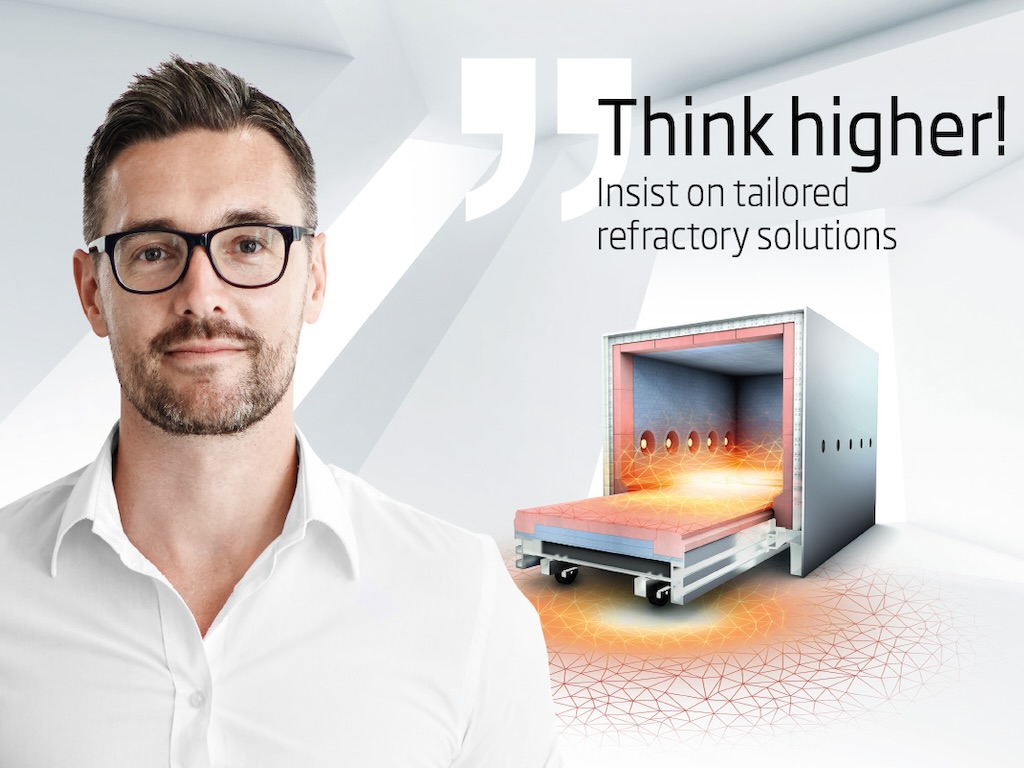Like many other industrial sectors, the steel industry faces major challenges when it comes to energy and environmental issues: Among other things, energy must be saved and the CO2 footprint reduced. The optimal refractory lining for heat treatment in the steel industry is a key factor here. It’s a topic that RATH has been working on intensively for some time now and in which it has extensive expertise: RATH combi-modules are one of the many proven products that RATH relies on in this respect.
“When it comes to saving energy, having the right refractory lining is crucial. It’s been proven that the optimal refractory lining contributes significantly to energy savings,” says Richard Jäger, Head of Sales Metals & Fuels, Chemicals, Energy, RATH Group.
For more than 130 years, RATH has been burning for refractory products and is one of the most renowned specialists for refractory technology – especially heat treatment in the steel industry. RATH’s application engineers know the heat treatment industry’s requirements and processes down to the last detail and are sought-after experts when it comes to processing and coordinating refractory supplies for heat treatment furnaces worldwide. The internationally operating Austrian refractory manufacturer offers a comprehensive range of premium refractory solutions and products for the entire spectrum of continuously or discontinuously operated steel heat treatment furnaces. And RATH is ready for the future: RATH refractory materials can also be used to line electrically heated, as well as hydrogen-fired furnaces.
RATH combi-modules: A proven product for the refractory lining of forging furnaces
Whether high-temperature wool, lightweight refractory bricks, concretes or dense bricks, the RATH engineering experts always find the best technical and economical solution for the requirements of the heat treatment industry. For example, a bogie hearth forging furnace is lined with a mix of different RATH products: Combi-modules in the upper furnace and roof, but dense castable solutions for the lower walls and the kiln car, which guarantees an optimum, energy-efficient lining. Combi-modules are one of many proven products RATH relies on, e. g. for the refractory lining of forging furnaces: A combination of different high-temperature wool qualities provides a technically and economically optimal solution.
RATH combi-modules represent a unique form of modular lining for the entire forging industry. Thanks to the RATH-specific connection system, which does not require the addition of any foreign substances, RATH combi-modules also offer unlimited thermal shock resistance. These modules are available to meet specific customer requirements and are produced in a wide variety of shapes and sizes.
More information: rath-group.com/metals
